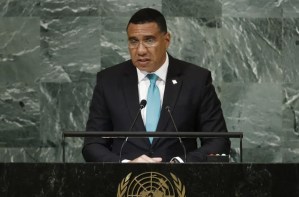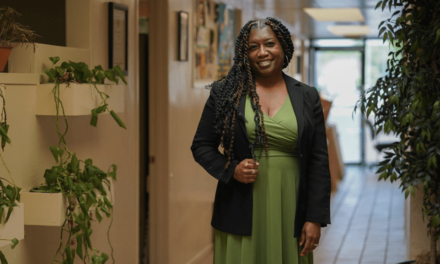By Dánica Coto,
The Associated Press
Jamaica’s prime minister said his government is willing to send soldiers and police officers to Haiti as part of a proposed multinational security assistance deployment.
The announcement comes a week after U.N. special envoy for Haiti Helen La Lime said she hoped that the U.N. Security Council would deal “positively” with the pending request from Haiti’s government for international armed forces despite the U.S. and Canada showing no interest.
Jamaican Prime Minister Andrew Holness told the island’s House of Representatives on Jan. 31 that he wants to help Haiti and “support a return to a reasonable level of stability and peace, which would be necessary for any inclusive, democratic process to take root.”
Haiti’s prime minister and other top officials had requested the immediate deployment of foreign troops in early October amid a crippling fuel siege blamed on the country’s most powerful gang.
U.N. Secretary-General António Guterres and La Lime have backed the plea to no avail.
The U.N. Security Council has mulled the request but taken no action, opting instead to issue sanctions on people including Jimmy Chérizier, a dominant gang leader and former police officer blamed for masterminding multiple massacres.
Meanwhile, Holness said Jamaica is ready to offer bilateral support if needed.
“It is our real hope that Haiti will soon overcome her challenges and embark on a path toward restoration of stability, long-lasting peace and sustainable development for her land and people with the full backing of the international community,” he said.
A U.N. spokesman did not immediately return a message for comment.
Jamaica is a member of a regional trade bloc known as Caricom, which last week issued a statement urging “all stakeholders to come together in their search for a consensus agreement” to resolve what it called a protracted political stalemate in Haiti, adding that it was prepared to hold a meeting in the Caribbean to talk about the issue.
Haiti was stripped of all democratically elected institutions when the terms of the remaining 10 senators expired in early January. Prime Minister Ariel Henry has promised to hold general elections for more than a year, but a provisional electoral council has yet to be chosen, which some critics say has led to a de-facto dictatorship.
Haiti also has been struggling with levels of violence not seen in decades ever since the July 2021 assassination of President Jovenel Moïse at his private home, with gangs now believed to control 60 percent of the capital of Port-au-Prince.
The number of reported kidnappings soared to 1,359 last year, double compared with the previous year, and reported killings have spike by a third to 2,183, according to the U.N.
Gangs also were blamed for killing at least 10 police officers in late January.
Haiti’s National Police has fewer than 9,000 active police officers for a country of more than 11 million people who not only face a spike in violence but also deepening poverty and a deadly cholera outbreak.
The post Jamaica ready to send soldiers, police to quell Haiti chaos appeared first on AFRO American Newspapers .











